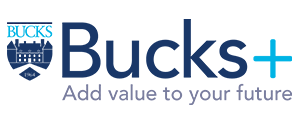
Description
Lehigh University, situated in Bethlehem, Pennsylvania, serves as an academic institution dedicated to nurturing the intellectual growth and professional development of its student body. The university boasts an enrollment of 384 first-year students, 471 second-years, and 165 third-year students, reflecting its commitment to providing a comprehensive educational experience across various stages of undergraduate study. Notably, Lehigh stands out as the sole college offering a pioneering professional development curriculum during the first semester of the first year, complemented by a multi-year co-curricular program aimed at fostering holistic student success. Acknowledging its innovative approach to education and training efforts, Lehigh University was honored with the prestigious Pathways 2022 Best Branding award, underscoring its prominence in the higher education landscape
About the School
Lehigh University is dedicated to the advancement of education through a holistic approach that integrates teaching, research, and community service. Their primary objective is to furnish students with a comprehensive learning experience rooted in essential, adaptable skills applicable across various fields and practical situations. The institution also strives to cultivate significant relationships and collaborations with its alumni and supporters on a global scale. Embodying core principles such as integrity, equity, academic freedom, intellectual curiosity, collaboration, commitment to excellence, and leadership, Lehigh University maintains a steadfast commitment to its values.
Within their College of Business, Lehigh University offers a diverse array of academic programs encompassing eight majors: Finance, Marketing, Management, Accounting, Economics, Supply Chain Management, Business Information Systems, and Business Analytics. These majors are designed to equip students with the knowledge, skills, and insights necessary to excel in today’s dynamic business landscape. Through a blend of rigorous coursework, experiential learning opportunities, and engagement with industry professionals, Lehigh University’s College of Business prepares students to become versatile leaders and innovators in their respective fields.
Challenges before Suitable
Before teaming up with Suitable, the institution lacked a systematic approach to monitor student engagement levels. They saw a noticeable absence of a centralized platform to disseminate information effectively to students. Communication hurdles were evident, and accessing relevant data proved to be challenging. A significant worry loomed over the inability to discern which students were actively engaged within the student body.
In response to these concerns, the decision was made to collaborate with Suitable to bridge this gap. The implementation plan included the introduction of the Student to Professional Program (STP) during fall orientation, in conjunction with the undergraduate programs office during admissions day and club fairs. To ensure widespread awareness and participation, various communication channels were leveraged, such as a weekly newsletter, integration into Banner for visibility of requirements and benefits, email campaigns, push notifications, flyer distribution, and the utilization of GroupMe by interns.
Through this partnership and strategic approach, the institution aimed to enhance student engagement, foster a sense of community, and provide valuable opportunities for personal and professional growth.
Life with Suitable
The purpose of the Student to Professional (STP) Co-Curriculum is to educate undergraduate students about fundamental professional skills. By participating in this co-curriculum, students develop a broad understanding of career skills, which assists them with transitioning from being a student to a young professional.
With STP there are four tiers. Tier 1 focuses on Professional Foundations in the first semester of a student's first year. Here students build a foundation for their essential career skills and knowledge through required coursework in their first semester. They’ve focused on large group facilitation and tied it to registration PIN. Tier 2 focuses on Professional Planning in student’s 2nd semester of their first year. Here students engage in a community-building, cohort-based, co-curriculum program in the spring semester of their first year. In this tier, students are broken into cohorts that are facilitator-led. They also are tied into registration PIN. Tier 3 focuses on Professional Preparation for second-year students. The focus is to enhance students’ personal preparation as they actively apply for experiential learning opportunities, including internships. This tier is more self-paced yet also tied to the registration pin. It includes activities like completing a mock interview Tier 4 focuses on Professional Expertise in a student's third year. This tier focuses on allowing students to participate in specialized activities/programs organized by major, industry, or skill. This tier is also self-paced and tied to registration pins. After the completion of Tier 4, students receive their Student to Professional Certification.
 STP has a competency selection that aligns with NACE Competencies in conjunction with the Center for Career and Professional Development. Their four competencies are Professional Identity, Networking, Professionalism, and Career Management.
STP has a competency selection that aligns with NACE Competencies in conjunction with the Center for Career and Professional Development. Their four competencies are Professional Identity, Networking, Professionalism, and Career Management.
Through the implementation of branding and badges, they have successfully instigated significant structural transformations within their organization. Moreover, their approach to student communication is characterized by strategic precision. They prioritize fostering connections and clear communication channels during pivotal junctures such as first and second-year orientations. Regular end-of semester department meetings serve as platforms for reflective evaluation, identifying both successes and areas for enhancement. These insights are disseminated effectively, reaching interdisciplinary degree students and ensuring transparency across all tiers through individualized letters.

Outcomes Achieved
Since implementing STP, there has been a remarkable surge in student engagement rates. In 2020, their engagement averaged 32%, with a completion of 898 activities. By 2021, this figure soared to 86%, with a remarkable 5,378 activities completed, In the following year, 2022, the engagement rate maintained its impressive momentum, with an average of 75% and an astonishing completion of 10,989 activities.
The approach they’ve adopted to sustain student engagement involves a strategic combination of checkpoints, incentivized item withholding, and item reception. They've observed significant success by incentivizing students through various means, such as awarding badges for exceptional performance, facilitating the curation of Padfolios for professional showcasing, hosting brunches for early assignment completions, and highlighting the benefits of their Student Transition Programs (STP) during class registration.

Moreover, they have fostered impactful partnerships with key entities like the Center for Career and Professional Development, University Development and Alumni Relations, and Lehigh 360, leveraging these collaborations to enhance student experiences. Additionally, they've introduced a range of innovative community engagement initiatives, including ice-cream truck socials, utilizing intern teams as ambassadors, involving student clubs and organizations, and leveraging the Club Hub as a platform to promote campus events.
Overall, their multifaceted approach to student engagement not only fosters a sense of belonging but also creates opportunities for personal and professional growth, enriching the university experience for all involved.
Plans for the Future
In the near future, they are actively seeking additional funding to enhance the program's capabilities. Alongside this, they are keen to explore the potential of establishing scholarship opportunities to complement the program's objectives. Their immediate focus lies on the successful implementation of Tier 4, with the overarching ambition to achieve a cumulative activity completion of 20,000. Their target engagement rate across all tiers stands at an impressive 85% or higher, underscoring their commitment to robust participant involvement. Furthermore, they are in the process of recruiting additional personnel to bolster program support.
Looking ahead, their aspirations include the development of more effective incentive mechanisms, particularly those grounded in experiential rewards. They envisage restructuring the tier system to enable students to navigate through them in a more flexible, non-linear manner. Integrating data with Banner across all tiers is a key priority for streamlined operations. Additionally, they aim to establish a transcript presence, facilitate training sessions for other campus institutions on program utilization, and ensure comprehensive coverage of all College of Business engagement opportunities for AACSB reporting purposes.




